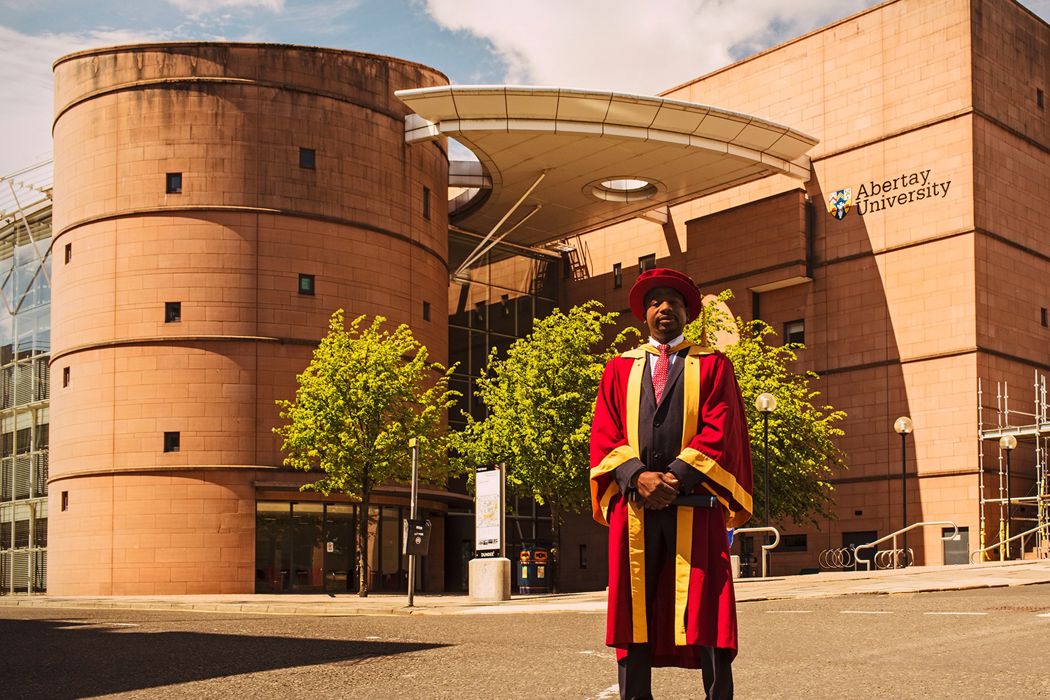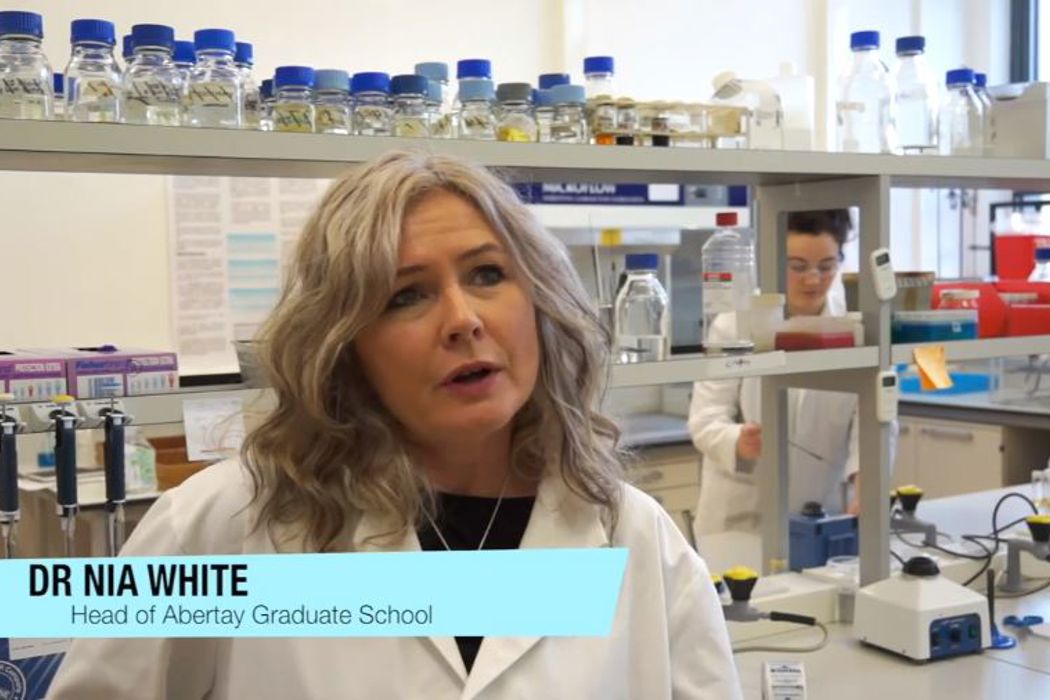Phd In Game Design Uk
Course detail
Start Date
February, June , October
Duration
MSc by Research normally 1 year full-time or 2 years part-time, MPhil normally 2 years full-time or 4 years part-time, PhD normally 3 years full-time or 6 years part-time
Award Title
Overview
This is a potential research degree area, subject to the approval of the University. If you are interested in undertaking a research degree in this area, please make contact with the Dean to discuss your proposal.
The UK video games sector is a highly dynamic and ever evolving global success story.
Abertay University continues to lead the development of games as an academic meta-discipline, incorporating computer science, computer art, digital design, sound and music, human computer interaction, and media studies.
Game Design at Abertay University covers a wide range of applied and theoretical research. As technologies evolve and audiences expand, now is an excellent time to engage with research in games, with applications in:
- Business growth and production studies
- Entertainment and storytelling
- Digital health
- Training and education
- Heritage and the arts
At Abertay, you will be supported to conduct this research by our world-leading expertise in computer games education, our connections with key industry partners such as Microsoft and Sony, and our specialist computer arts and game development facilities.
Our research is inherently cross- and inter-disciplinary, which is of particular importance for research in game design. We lead the InGAME project, one of the nine AHRC-funded Creative Industry Clusters Partnerships, which is a consortium of industrial and academic partners. This project will underpin growth of the regional games and media sector.
Dundee is one of the UK's oldest and most successful games hubs. The city has longstanding relationships with local, national, and international game studios. Undertaking a research degree in game design at Abertay will prepare researchers for careers not only in academia, but also within wider society.
What does a research degree involve?
As a postgraduate research student, you will carry out an original, independent research and/or practice-based project, whilst being guided and supported by a team of expert academic supervisors. As you do this, you will benefit from an extensive programme of researcher development tailored to your background, needs and future ambitions. This will in turn help you develop the skills required to deliver research excellence.
Your progress will be monitored throughout the year and via an annual review. The final assessment is by examination of your submitted thesis and a viva voce (oral examination).
With the help of your supervisors, you will be encouraged to publish your research during and after your studies.

Our research degrees
You have the option of studying an MSc by Research, an MPhil or a PhD.
When deciding which degree is right for you, you should consider the level of commitment required, the duration, cost and your career aspirations.
That being said, our research degrees are flexible. You can begin an MSc or an MPhil and then seek to transfer to a PhD without having to start your project all over again. You can also switch from full-time to part-time study, and vice versa.
MSc by Research
The award of Master of Science by Research (MSc by Research) demonstrates a practical ability to undertake research studies, a systematic understanding of knowledge and a critical awareness of current problems and/or the application of original thought.
How long is an MSc by Research?
If you are studying full-time, you will be expected to complete the award in 12 months. The minimum period to receive this award is 10 months and the maximum is 14 months.
If you are studying part-time, you will be expected to complete the award in 24 months. The minimum period to receive this award on a part-time basis is 20 months and the maximum is 28 months.
MPhil
The award of Master of Philosophy demonstrates a systematic understanding of knowledge and a critical awareness of current problems and/or the application of original thought, much of which is at (or informed by) the forefront of your field of study or area of professional practice.
How long is an MPhil?
If you are studying full-time, you are expected to complete the award in 24 months. The minimum period to receive this award is 12 months and the maximum is 48 months.
If you are studying part-time, you are expected to complete the award in 48 months. The minimum period to receive this award on a part-time basis is 24 months and the maximum is 72 months.
PhD
The award of the Doctor of Philosophy demonstrates that the main focus of your work is your personal contribution to knowledge in your discipline or field, through original research or the original application of existing knowledge.
How long is a PhD?
If you are studying full-time, you are expected to complete the award in 36 months. The minimum period to receive this is award is 24 months and the maximum is 48 months.
If you are studying part-time, you are expected to complete the award in 48 months. The minimum period to receive this award on a part-time basis is 72 months and the maximum is 96 months.
What makes Abertay's Graduate School different?
Abertay is a small university, which means that as a research student, you'll be joining a close-knit community of scholars and researchers.
Watch Prof Nia White, Dean of Research and Abertay's Graduate School, along with some of our research students discuss what makes Abertay's Graduate School different from other universities.
Learn more about our Graduate School

How to apply
1. Meet the academic entry requirements
The minimum entry requirement for all our research degrees is an Upper Second Class Honours degree (or equivalent) at undergraduate level in an appropriate discipline and/or a Master's degree. In some cases, appropriate professional or experiential learning may be considered in combination with a lower classification of Honours degree.
2. Meet the visa and English language requirements
If you're not from the European Economic Area (EEA) and/or Switzerland, you may need to apply for a visa. You can find out more about applying for a visa and collecting your Biometric Residence Permit (BRP) on our Tier 4 visa page. To identify whether or not you need to apply for a visa, please visit the UKBA website.
If your first language is not English or your undergraduate/Master's degree was not taught in English, you are also required to hold a suitable English language certificate.
If you require a Student Visa, you must provide one of the following English language certificates:
- West African at B(4)
- NECO at B(4)
- IELTS 6.5 with no band less than 6.0*
If you do not need a Student Visa or are an EEA national, you are permitted to use one of the following:
- TOEFL 80 with no band less than 18*
- Pearson's PTE 61 with no band less than 56*
*The University can only accept these qualifications if they were completed two years prior to the start of the programme.
3. Find a supervisor
You can look for potential supervisors by searching keywords, names or publications in theStaff Explorer. This will ensure that we have appropriate expertise within Abertay. You will also gain an understanding of the prior work of the researcher.
You should consider contacting the potential supervisor to discuss your ideas and the possibility of undertaking a research degree under their supervision. Discussion will also help you tailor your application to suit Abertay's specific expertise in the area. Ask for feedback and be prepared to take those comments into consideration when finalising your research proposal.
You can also contact the Dean of School or our Graduate School if you would like advice on potential supervisors.
Please avoid vague blanket emails to several potential supervisors as these are unlikely to be successful.
4. Secure funding
5. Write your research proposal
This is your opportunity to state your research objectives, to grab the reader's attention and highlight your suitability for research degree study.
The proposal should be around 6-8 pages in length (including references) and follow the section headings below.
- Title.
- Abstract (summary).
- Introduction/background.
- Hypotheses, objectives or research question.
- Proposed methodology.
- How will you disseminate your findings (pathways to impact).
- Ethical considerations.
- Summary and conclusions.
- References.
- About you: briefly describe your relevant experience and how it will help you achieve your objectives, explain why you are an excellent candidate for a research degree, and identify your additional professional development and training needs.
Some good practice tips:
- Be clear and concise.
- Structure your proposal by breaking up blocks of text into smaller paragraphs (with headings).
- Reference you work.
- Justify your objectives.
6. Apply online by the relevant deadline
You can start a research degree at Abertay in February, June or October of each year. You can apply to defer from one entry point to another on one occasion, however, subsequent requests must be supported by an additional full application.
Unless otherwise stated, the deadlines for submitting a full application are:
- Applications for February entry by 15 December (if you need a Tier 4 visa then the deadline is 30 November).
- Applications for June entry by 30 April (if you need a Tier 4 visa then the deadline is 31 March).
- Applications for October entry by 31 August (if you need a Tier 4 visa then the deadline is 31 July).
You will need to include the following documentation when you apply online:
- Copies of your academic transcripts
- References
- Your research proposal
Apply now to start in:
Contact us for further advice
Apply now to start in:
Phd In Game Design Uk
Source: https://www.abertay.ac.uk/course-search/postgraduate-research/game-design/
Posted by: pruittaccultoo1942.blogspot.com

0 Response to "Phd In Game Design Uk"
Post a Comment